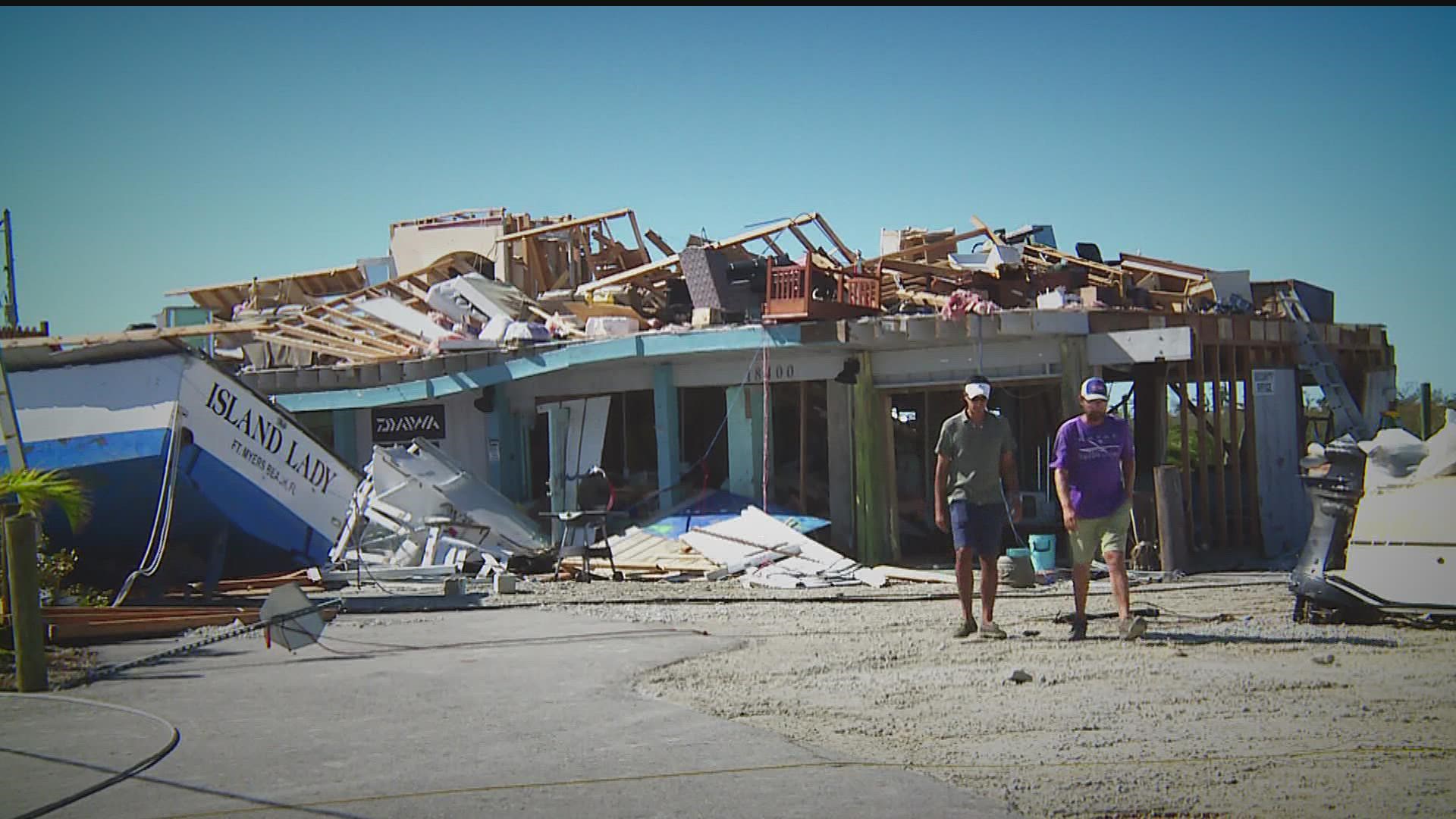FORT MYERS BEACH, Fla. — Five days after Hurricane Ian made landfall, many residents are realizing that rebuilding their lives could take longer than expected.
"There's nothing without damage,” Kelly Hartman said of Fort Myers Beach.
“Everything you know about Fort Myers Beach is gone, flat.”
Hartman was on the fourth floor of a nine-story building on Fort Myers Beach when Hurricane Ian made landfall.
“We just saw all of these cars floating by us and around the buildings,” Hartman explained. “There’s not a building there that wasn’t damaged.”
Hartman was rescued by boat and was able to make it back to the mainland of Florida on Friday.
She is preparing to spend a significant amount of time with her family in Indiana until her home is rebuilt.
Daryl Schumacher also lives in the Fort Myers Beach area. His home was also damaged in the storm. He says it’s overwhelming to think about rebuilding because pretty much the entire community needs to be rebuilt.
"It just looks like a war area, you know what I mean? It looks like someone bombed it out,” Schumacher says.
Hurricane Ian damaged countless homes and businesses in the barrier islands off the western coast of Florida.
Some of those islands can only be reached by boat as Hurricane Ian destroyed several sections of the Sanibel Causeway.
The causeway is the only road in or out of the Sanibel and Captiva Islands.
According to a daily report from the Florida Governor's Office on Monday, around 50 highways, major roads and bridges in Florida are still closed.
Governor Ron DeSantis says many of those roads and bridges need to be rebuilt, which could take a long time.
Luckily Red Cross volunteers are prepared to be in Florida for the long hall.
"It would not surprise me at all if we had people through the new year,” Red Cross spokesperson Carrie Carlson-Guest said.
The Minnesota-Dakotas region has more than 100 Red Cross volunteers either already in Florida or on standby.
Many of those volunteers are working to set up shelters so evacuees can have the basic comforts that many of us take for granted.
As of Monday, more than 840,000 homes are still without power and hundreds of thousands are still without water.
Many who are lucky enough to have water are encouraged to boil it, with 50 boiling advisories currently in effect due to concerns about contamination.
"It's some of that infrastructure piece that is just going to take a long time,” Carlson-Guest said.
The road to recovery will be long and difficult in Florida.
Will it take months? Years? No one knows for sure.
"It's not going to go back to the way it was, but together we can work to make it better than it is right now,” Carlson-Guest said.
Watch more local news:
Watch the latest local news from the Twin Cities in our YouTube playlist:

